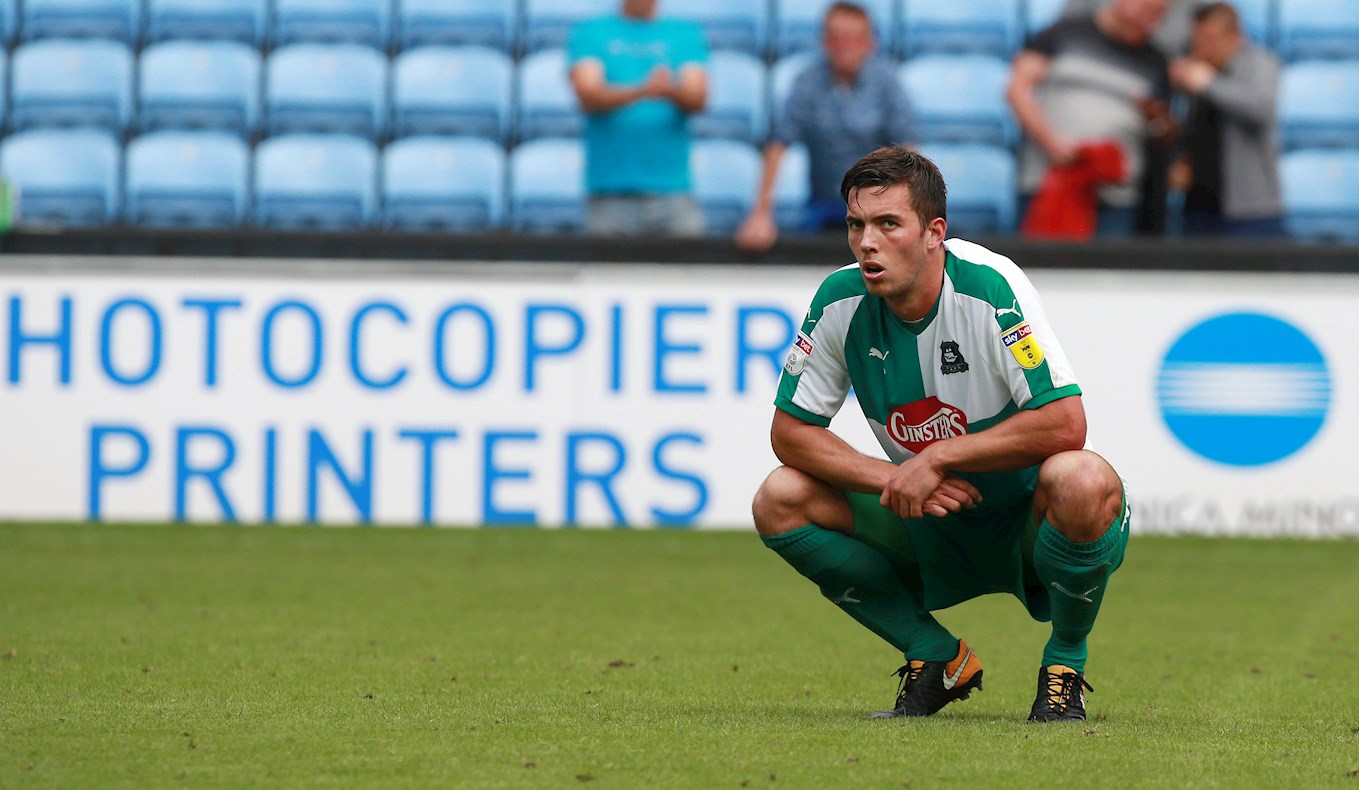Niall's Health: Part One
IN the first of three exclusive interviews, Argyle defender NIALL CANAVAN talks openly for the first time about discovering how what he took to be simple fatigue was really a symptom of a serious illness.
NIALL Canavan knew something was wrong when he did not have the strength to get out of his car following a match.
That, and an incredible longing for a drink. Cynics may say that is nothing unusual for a professional footballer, but this was different. Having been signed by Derek Adams for Argyle at the beginning of the 2018-19 season, the 28-year-old centre-back struggled to cope with the training regime at his new club.
“I’d had a couple of years of not playing so much, due to injury and other things,” he said. “I did feel very fatigued all the time, but just put it down to being out of the practice of being in a routine.
“The manager had quite a heavy training schedule, so you always felt tired anyway, or that’s what I assumed. I sweat quite a lot, so the thirst thing never really became apparent because I drink a heck of a lot, anyway.
“It was only later that I started thinking ‘Maybe this isn’t right’, because I could be chugging away all day and still be dehydrated.
“I used to get cramps an hour after every single game – everywhere, without fail. No matter what I ate, what I drank; no matter if I stretched or jogged around, anything: an hour after every game, I was pretty much useless.
“I’d be sat in my car a couple of times and I couldn’t get out of it; I’ve been sat outside in the rain because I couldn’t get up the steps to get in my flat. From the knee down, I was fine, but quads, hamstrings, my back, my stomach, my arms, my chest – everything – would just start spasming.
“The cramping I just put down to maybe dehydration or a lack of salt. So, I kept trying different things but seemed to still get the same results, no matter what I tried.
“That’s when I became a bit frustrated and made a real point to the medical team. I’d never had cramp after a game, ever. It didn’t make any sense. All through pre-season, things had been fine – everything was absolutely as it should be – and then it just changed.
“We did a hydration test every morning, and my scores went from within the perfect levels to severely dehydrated overnight. I had started using creatine as a supplement and we put it down to there being something in that that was not being processed by my body and I was passing it out. We thought that was maybe what was conning the machine, so we just left it.”
A mid-season injury then gave the Leeds-born defender an opportunity to regroup and explore his body’s strange signals.
“It was around Christmas time,” he said. “I’d turned my ankle in training, and I was going to be out for about two weeks. The cramps were still happening, and I still felt shocking. So, I thought ‘I’ll test it out’. I stopped taking creatine and then, when I came back to training, we tested the hydration again and the score was still ridiculously high. The optimum for the machine we were using last year is between 200-400, and my score was 1,400.
“Ollie, the old strength and conditioning coach, said ‘That’s not right’. We spoke to the club doctor; he came in and used a swab which tests for sugar in your urine. He also asked if I could come in the next day and do some blood tests.”
Before the tests, Niall did what many in his circumstances would do and consulted Dr Google. The online diagnosis pointed towards an illness that affects only about 8% of the population, most of whom are children or adolescents. So, it could not be that, could it?
“It was the weekend before we played Coventry City,” he said. “I went in on the Friday morning, having not eaten anything since the day before; had the bloods; and thought nothing of it. I thought it must’ve been a bit of a mistake
“I played the game and saw the physio Monday morning. He just smiled at me and said ‘The Doc wants to see you this afternoon’. I said, ‘Right – so what are we looking at?’”
What they were looking at was type 1 diabetes.
Type 1 diabetes occurs when the body does not produce any insulin, a hormone that regulates blood sugar levels. If these levels get too high, and are not regulated, serious damage can occur to the body’s organs, notably the heart, eyes, feet and kidneys.
Niall said: “Type 1 is generally found in very young children or throughout your teenage years, so I am late on in life to get it, but I feel that helps me a little bit because I can’t think of anything worse than having it as a child.
“I had a friend at school who had it and we used to take the mickey out of him. He used to join in and that was his way of dealing with it. I can’t imagine how hard it must have been at times: when your mates are going out and wanting to do new things, you’ve always got to be checking and keeping an eye on it.
“The first thing I asked them when I was told I had it was ‘Will my son have it?’ and they said ‘no’. Because I got it after 25, it’s not hereditary, which is a good thing, I suppose.”
The second question was could Niall continue playing professional football?’
Next: Coming to terms with living with type 1 diabetes
For more information about diabetes, go here. www.diabetes.org.uk

